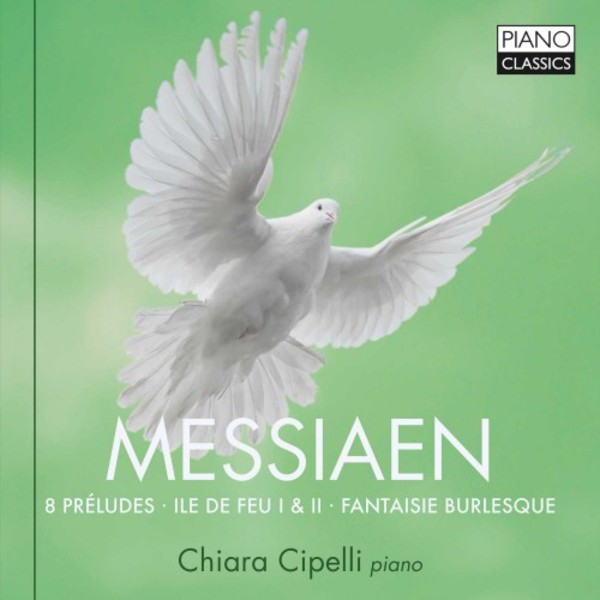
Messiaen - 8 Preludes, Ile de Feu I & II, Fantasie Burlesque
£15.15
In stock - available for despatch within 1 working day
Despatch Information
This despatch estimate is based on information from both our own stock and the UK supplier's stock.
If ordering multiple items, we will aim to send everything together so the longest despatch estimate will apply to the complete order.
If you would rather receive certain items more quickly, please place them on a separate order.
If any unexpected delays occur, we will keep you informed of progress via email and not allow other items on the order to be held up.
If you would prefer to receive everything together regardless of any delay, please let us know via email.
Pre-orders will be despatched as close as possible to the release date.
Label: Piano Classics
Cat No: PCL10200
Format: CD
Number of Discs: 1
Genre: Instrumental
Release Date: 14th February 2020
Contents
Works
Etudes de rythme (4)Piece pour le tombeau de Paul Dukas
Prelude for piano (1964)
Preludes (8) for piano
Artists
Chiara Cipelli (piano)Works
Etudes de rythme (4)Piece pour le tombeau de Paul Dukas
Prelude for piano (1964)
Preludes (8) for piano
Artists
Chiara Cipelli (piano)About
Now she turns her attention to the early works of Olivier Messiaen which are contemporary with much of Bettinelli’s piano music. Dating from 1929, the cycle of Eight Preludes finds Messiaen at his most impressionistic, with an opening, entrancing evocation of a dove that perhaps owes more to the spare language of Ravel in the ‘Oiseaux tristes’ of Miroirs than it does to his own, later and more extrovert transcriptions of birdsong.
These Preludes strike a prevailing mood of reflection and calm, tending towards a French but uncharacteristic melancholy. Already in the second Prelude the 21-year-old Messiaen is trying out the effect of a visionary, aspiring melody over the top of a solemn chorale – the master organ improviser at a very early stage of development (he had not even set eyes on an organ manual until three years earlier).
The rarely encountered Pièce pour le tombeau de Paul Dukas strikes an even more sombre note, as a piece written by Messiaen in memory of his much-loved teacher of composition at the Paris Conservatoire. Here is a superb example of Messiaen’s chorale style, at once ecstatic and severe, at its most omposing and yet compressed (lasting only four minutes).
Thereafter, Chiara Cipelli’s album strikes a more extrovert note, with the Fantaisie Burlesque of 1932 and a pair of the Quatre Etudes de rythme with which the composer revolutionised his own language in the early 1950s and prefigured much avant-garde music by his pupils such as Boulez and Stockhausen. In the two Ile de feu studies, every aspect of composition is systematised according to a pre-arranged plan – not only notes in the 12-tone method devised by Schoenberg, but rhythms and even durations. Yet the results are much too stark and fiery to be confused with anyone but Messiaen.
Chiara Cipelli ends her recital with a genuine rarity, the standalone Prelude which Messiaen wrote in 1964 but withheld, so that it only saw the light of day in 2000, eight years after his death. This reveals similarities to his earlier Preludes and at the same time incorporates his later interest in bird-songs: it’s a must-hear for anyone interested in Messiaen’s unique world.
Error on this page? Let us know here
Need more information on this product? Click here